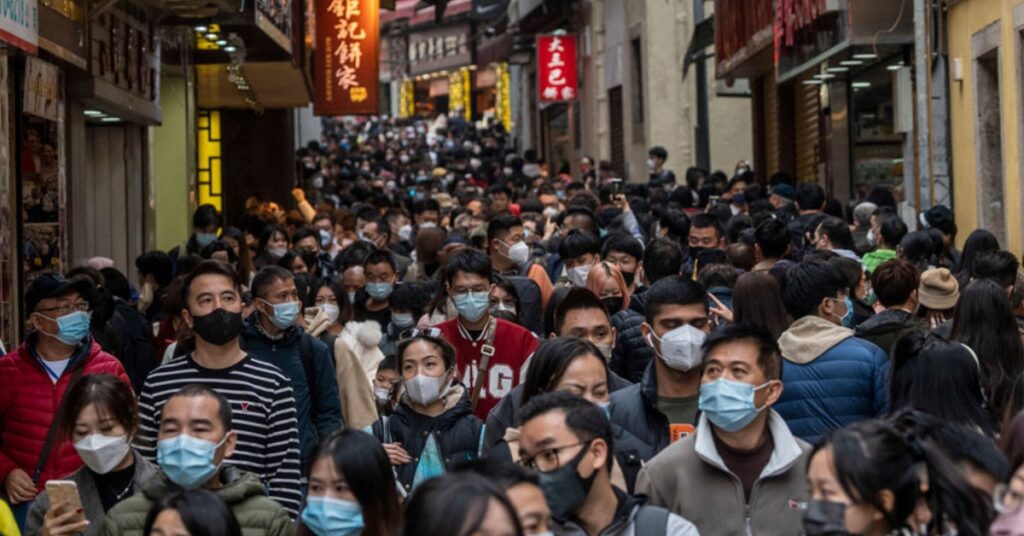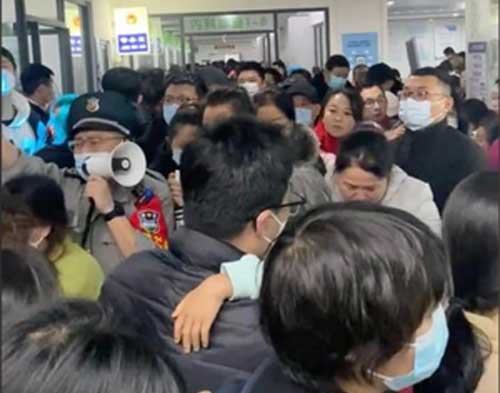China is facing a new virus outbreak, with the Human Metapneumovirus (HMPV) spreading rapidly, causing flu-like and COVID-19-like symptoms.
Five years after the COVID-19 pandemic, China is now grappling with a new health crisis—the human metapneumovirus (HMPV) outbreak. Reports and social media posts are painting a grim picture of the situation, with hospitals and crematories reportedly overwhelmed. The rapid spread of the virus has led to overcrowded hospitals and overburdened crematories, creating an urgent need for action.
Despite the alarming claims on social media, it’s important to note that there’s no official confirmation of the situation. Some social media users claim that multiple viruses, including influenza A, HMPV, Mycoplasma pneumoniae, and Covid-19, are circulating in China. There are even claims that China has declared a state of emergency. However, amidst this uncertainty, there’s no official confirmation.
A social media post by an X handle known as ‘SARS-CoV-2 (Covid-19)’ wrote in a post: “China is facing a surge in multiple viruses, including Influenza A, HMPV, Mycoplasma pneumoniae, and Covid-19, overwhelming hospitals and crematoriums. Children’s hospitals are particularly strained by rising pneumonia and “white lung” cases.”

Here is what we know so far about the New virus. The HMPV causes flu-like symptoms and usually affects the upper respiratory system but can sometimes cause lower respiratory infections. HMPV is more common in winter and early spring.
According to sources, symptoms of HMPV are similar to those of flu or common cold. It can spread from an infected individual to others through coughing, sneezing, or personal contact. Some common symptoms include:
- Cough
- Fever
- Nasal congestion
- Sore throat
- Shortness of breath
So, who is more likely to be affected by the virus, how many days does it take to incubate, and are there any vaccines? Young children, older adults, and those with weakened immune systems are at a higher risk of developing severe illness due to HMPV. The estimated incubation period is three to six days, and the duration depends on the severity of the infection.
Currently, there’s no specific antiviral treatment for HMPV. No vaccine has been developed either. General supportive care is given to address the symptoms.
How do we stop and avoid getting infected? According to medical officials, hands should be washed frequently with soap and water for at least 20 seconds. Avoid touching the eyes, nose, or mouth area with unwashed hands, and avoid close contact with people who are sick.
On the other hand, a news report by Reuters has said that China’s disease control authority said on Friday that it was piloting a monitoring system for pneumonia of unknown origin, with cases of some respiratory diseases expected to rise through the winter. The attempt to build a specialized system is intended to assist authorities in developing methods to deal with new diseases, as opposed to the lesser degree of preparedness that existed five years ago when the unique coronavirus that causes Covid-19 first emerged.
China is likely to be affected by various respiratory infectious diseases in winter and spring, Kan Biao, another official, said at the news conference. He said without elaborating that the overall number of cases this year would be smaller than last year.
Recent cases detected include pathogens such as the rhinovirus and human metapneumovirus, with cases of the human metapneumovirus among people under the age of 14 showing an upward trend, especially in northern provinces.
While many social media posts and reports claim that China is grappling with another epidemic, the health authorities have no official statement about a possible state of emergency. With no specific treatment or vaccine available for HMPV, awareness about the virus can help promote precaution and prevention.















